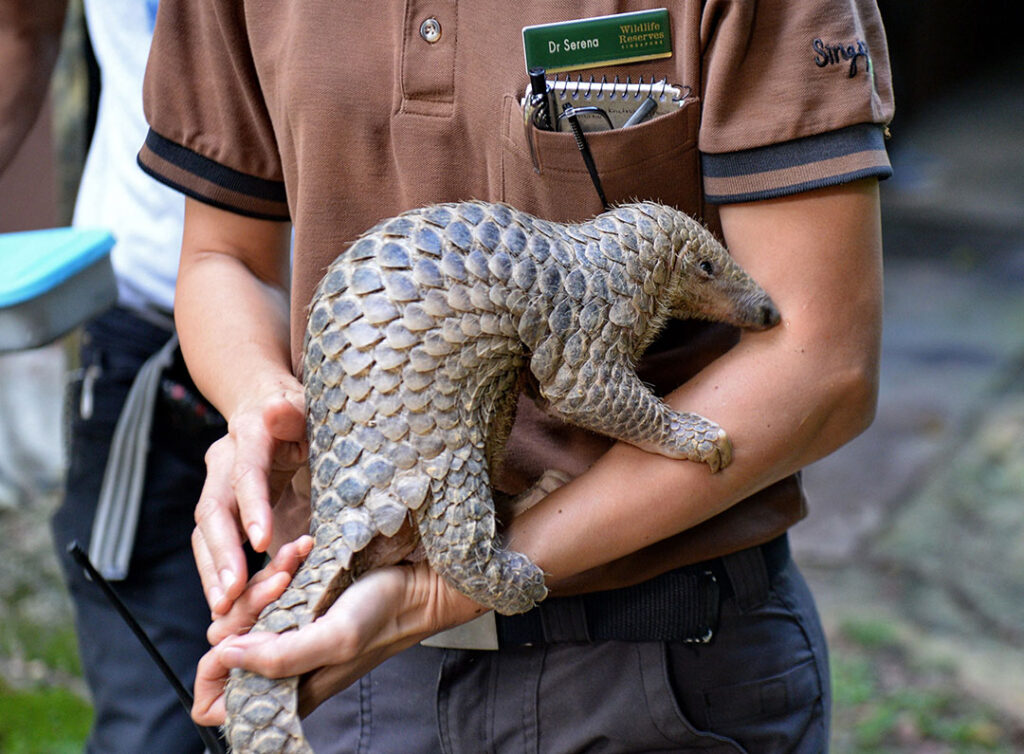The world’s most illegally trafficked animal has been linked to the coronavirus.
The BBC has reported that two groups of viruses behind the human pandemic have been identified in Malayan pangolins smuggled into China. Researchers in Hong Kong say that although the animals’ role in the outbreak has not been confirmed, sales of the animals should be “strictly prohibited” in Asia’s “wet markets” — outdoor markets that deal in live animals, meat and fish.
One theory is that pangolins carrying the virus, SARS-CoV-2, came into contact with humans through wet markets. The virus then made the jump from these creatures to humans, kicking off the current pandemic. The thinking among many scientists is that a coronavirus in bats seems to be the original source. Bats are a natural reservoir for the SARS-CoV-2 virus, or COVID-19. The bats, scientists believe, passed the virus on to pangolins.
Bats also were responsible for the deadly SARS virus that struck China and spread to other countries in the early 2000s.
The March 22, 2020, edition of the Journal of Proteome Research concluded that new analysis suggests “the pangolin as a missing link in the transmission of 2019-nCoV from bats to human.”
But the link between the virus and pangolins has not been universally accepted. Peter Daszak, president of EcoHealth Alliance, told The New York Times that accumulating evidence on pangolins made it “doubtful that this species played a role in the outbreak.”
“We need to keep looking for the original reservoir — likely a bat,” he said.
Pangolins are captured throughout Asia and Africa for shipment to China to be used in traditional Chinese medicine (TCM). Although some are shipped alive, most are slaughtered for their scales. The scales are made of keratin, also found in human fingernails and hair. Keratin has no medicinal value.
In April 2019, customs officers in Singapore inspected a shipping container and found almost 13 tons of pangolin scales, valued at $39 million. Less than a week later, they found a similar shipment. In all, poachers slaughtered 72,000 pangolins to produce the two stashes.
There are four species of pangolins in Asia and another four species in Africa. Two of the Asian pangolins have been hunted so aggressively that they are now classified as critically endangered.
For years, China has been under pressure throughout the world to stop the trade of poached animals, including pangolins. COVID-19 has raised the stakes even higher.
“We can’t be indifferent anymore!” China’s President Xi Jinping told officials in February 2020, in reference to people illegally harvesting and marketing wildlife, the Times reported.
The Chinese government has passed a law called “Comprehensively Prohibiting the Illegal Trade of Wild Animals, Eliminating the Bad Habits of Wild Animal Consumption and Protecting the Health and Safety of the People.” The law is directly linked to the coronavirus and how it seems linked to pangolins.

